Graduate Diploma of Creative Writing
Deakin university.
Type of institution: University/Higher Education Institution Level: Postgraduate CRICOS: 00113B
Discover how to connect with audiences of all ages in Deakin’s Graduate Diploma of Creative Writing. In this one-year specialist course, you’ll be mentored by published authors as you develop and refine a body of work for publication. Explore and master a range of key writing techniques, such as the ability to edit, analyse a range of genres, and blueprint a draft and take a concept through various stages of revision.

Designed for
Students seeking a specialist Level 8 Creative Writing qualification and/or a pathway to Masters or further study
8 credit points of study comprising core and course electives
- Creative non-fiction
- Fiction writing
- Life writing
- Script writing
Standard entry requirements
A Bachelor Degree in any discipline ORA Graduate Certificate in any discipline ORAt least two years of relevant work experience (or part-time equivalent)
Study pathways
Credit for prior learning will be granted in accordance with university policy
Study information
Fee comments.
Campuses: Melbourne Burwood.
Course fee shown is indicative and actual fees may vary.
Related courses

Diploma in Communication (International only)
University of the sunshine coast (unisc), bachelor of arts.

Bachelor of Marketing, Advertising and Public Relations
Edith cowan university ecu.

Bachelor of Criminology / Bachelor of Communication in Strategic Communication
Murdoch university.

Bachelor of Media and Communication (Honours)
Rmit university.

University of Newcastle
Request information update.
Become a member
Already a member? Login Forgot password?
Join the conversation
Search universities.
- Universities in ACT
- Universities in NSW
- Universities in QLD
- Universities in SA and NT
- Universities in TAS
- Universities in VIC
- Universities in WA
Search TAFE Institutes
- TAFEs in ACT
- TAFEs in NSW
- TAFEs in QLD
- TAFEs in SA and NT
- TAFEs in TAS
- TAFEs in VIC
- TAFEs in WA
Search by Field of Work
- Architecture, Building and Planning
- Create Arts and Design
- Computing and ICT
- Engineering and Technical
- Health and Community Services
- Hospitality and Tourism
- Scholarships
- Institutions
- Agriculture & Environment
- Architecture & Building
- Business & Management
- Creative Arts
- Engineering & Technology
- Health Sciences
- Information Technology
- Law & Justice
- Policy & Government
- Public Health
- Social Science
- Choosing a course
- Funding & scholarships
- International students
- Study advice
- Student life
- Getting a job
- Latest news
Deakin University
- 21% international / 79% domestic
- Scholarships 4
- Student Stories 4
Graduate Diploma of Creative Writing
Graduate Diploma
Key details
About this course.
Discover how to connect with audiences of all ages in Deakin's Graduate Diploma of Creative Writing. In this one-year specialist course, you will be mentored by published authors as you learn how to create a body of work for publication. Explore and master a range of key writing techniques, such as the ability to edit, analyse a range of genres, blueprint a draft, and take a concept through the various stages of revision. Want the confidence, insight and creative control to bring your story idea to life?
In core units, you will get to grips with the basics of constructing a great story. Learn in workshop-style classes and receive feedback as you discover how to manipulate time and perspective in narratives, experiment with genre, form and style, and refine your ability to create compelling characters and voices. In addition, you will be challenged to develop and employ regular writing structures, practices and modes of thinking - necessary skills for any working writer.
You'll then tailor your studies to your preferred creative path by choosing from five writing specialisations:
- short stories
- creative nonfiction
- life writing
- writing for children
You'll benefit from the chance to stretch your knowledge in electives from the Master of Arts (Writing and Literature), Master of Creative Arts and Master of Communication. Learn how to craft a compelling blurb, pitch a novel idea, or film a teaser trailer - skills that could apply to your novel or to a role in-industry.
This course attracts a wide range of students from all walks of life and all levels of experience, with an interest in writing. We encourage you to share your work and seek feedback, and look for opportunities to collaborate on creative projects.
We also encourage students to get involved with Verandah Journal, an annual student-run publication that showcases the best work of emerging writers and artists, and gives students the chance to develop expertise in selecting, editing and proofreading submissions for publication. You'll also benefit from Deakin's strong links with industry, with the opportunity to gain market knowledge and connections by securing an internship with one of our industry partners.
Career pathways
Graduates develop their writing skills through exposure to a range of different forms and genres. They consider how their own writing sits alongside other similar forms and can articulate the similarities and differences. They develop high-level creative and critical writing skills and the capacity to undertake independent and collaborative research. Writing and literature graduates have gone on to win awards like the Queensland Premier's Literary Award Melbourne Prize for Literature for their published works.
For more information go to DeakinTALENT
Course structure
To qualify for the Graduate Diploma of Creative Writing, students must complete 8 credit points of study comprising:
- 1 core unit
- 4 course electives from list A
- 3 credit points of electives chosen from units within the specialisations of the Master of Communication or Master of Arts (Writing and Literature) or the core or electives of the Master of Creative Arts including ACC700 Communication and Creative Arts Internship
- Academic Integrity Module DAI001
Course elective units
Elective units
Credit for prior study or work
The University aims to provide students with as much credit as possible for approved prior study or informal learning which exceeds the normal entrance requirements for the course and is within the constraints of the course regulations. Students are required to complete a minimum of one-third of the course at Deakin University, or four credit points, whichever is the greater. In the case of certificates, including graduate certificates, a minimum of two credit points within the course must be completed at Deakin. You can also refer to the Recognition of prior learning system which outlines the credit that may be granted towards a Deakin University degree and how to apply for credit.
Graduate outcomes
- Master of Business Administration
- Master of Counselling
- Master of Social Work
- Master of Graphic Design
- Master of Psychology
- Master of Physiotherapy
- Business Administration Scholarships
- Mathematics Scholarships
- Project Management Scholarships
- Architecture Scholarships
- Mental Health Nursing Scholarships
- Counselling Scholarships
- Bond University
- Murdoch University
- Swinburne University of Technology
- Macquarie University
- QUT (Queensland University of Technology)
- Partner Terms
- Advertiser Terms
- Privacy Policy
Copyright 2024 © PostgradAustralia. The most comprehensive postgraduate guide in Australia
- Skip to main content
- Australasia
- Social Studies and Media
- Deakin University
You've reached your limit of 10 Favourites
Graduate Diploma of Creative Writing Deakin University " class="blu_btn vst_lnk visit_up" id="visitWebLinkId" onclick="ga('send','event', 'Interaction', 'Webclick', 'Deakin University>' ,1, {'nonInteraction': 1});cpeWebLinkClick(this,'290408','72215','9','104529','N','3','55883302','Deakin University','L,L15','','3','13');gaInsightLog(this,'290408>','72215','Australia','104529','N','null','null');GAForCkieOnFormSubmit('Visit Website','Course Details');" target="_blank" rel="noopener" href="https://www.hotcoursesinternational.com/study/cpe-track.html?url=https%3A%2F%2Fwww.deakin.edu.au%2F%3Futm_source%3DIDP%26utm_medium%3Dreferral%26utm_campaign%3DIDP">
Study options.
- International
What will I learn?
Discover how to connect with audiences of all ages in Deakin’s Graduate Diploma of Creative Writing. In this one-year specialist course, you will be mentored by published authors as you learn how to create a body of work for publication. Explore and master a range of key writing techniques, such as the ability to edit, analyse a range of genres, blueprint a draft, and take a concept through the various stages of revision.
Want the confidence, insight and creative control to bring your story idea to life?
In core units, you will get to grips with the basics of constructing a great story. Learn in workshop-style classes and receive feedback as you discover how to manipulate time and perspective in narratives, experiment with genre, form and style, and refine your ability to create compelling characters and voices. In addition, you will be challenged to develop and employ regular writing structures, practices and modes of thinking – necessary skills for any working writer.
You’ll then tailor your studies to your preferred creative path by choosing from five writing specialisations:
short stories
creative nonfiction
life writing
writing for children
You’ll benefit from the chance to stretch your knowledge in electives from the Master of Arts (Writing and Literature), Master of Creative Arts and Master of Communication. Learn how to craft a compelling blurb, pitch a novel idea, or film a teaser trailer – skills that could apply to your novel or to a role in-industry.
This course attracts a wide range of students from all walks of life and all levels of experience, with an interest in writing. We encourage you to share your work and seek feedback, and look for opportunities to collaborate on creative projects.
Career outcomes
Graduates develop their writing skills through exposure to a range of different forms and genres. They consider how their own writing sits alongside other similar forms and can articulate the similarities and differences. They develop high-level creative and critical writing skills and the capacity to undertake independent and collaborative research. Writing and literature graduates have gone on to win awards like the Queensland Premier’s Literary Award Melbourne Prize for Literature for their published works.
Which department am I in?
Online/distance (1 year).
Please check with institution
*Price shown is for indicative purposes, please check with institution
8 July 2024, 3 March 2025, 7 July 2025
Entry requirements
For international students.
To be considered for admission to this degree you will need to meet at least one of the following criteria:
completion of a bachelor degree or higher
at least two years' relevant work experience (or part-time equivalent)
English Language Requirements:
IELTS: Overall 6.5 No band less than 6
TOEFL IBT: 79 Writing 21
TOEFL PBT: 577 Writing 4.5
C1 ADVANCED and C2 PROFICIENCY: 176 No band less than 169
PTE: 58 No less than 50 in each skill
OET: Overall C+
DUELI EAP PROGRAM: EAP 4 (60%)
*There may be different IELTS requirements depending on your chosen course.
About Deakin University 2 Reviews

Deakin University is a young and dynamic university, offering world-class degrees, excellent employment rates and an experience that students love.
- Top 1 percent in 20 study areas (QS, THE, ShanghaiRankings)
- Best overall educational experience in Victoria (QILT)
- Top 50 young universities globally (QS)
- Offers a curriculum that is practical and industry relevant

Graduate Diploma of Creative Arts
2024 deakin university handbook, course sub-headings, course overview, career opportunities, participation requirements, alternative exits, fees and charges, course learning outcomes, course rules, course structure, work experience, research and research-related study.
Upskill for the creative career you’ve always wanted with the Graduate Diploma of Creative Arts. Collaborate on real-world creative projects to build your portfolio and customise your degree to match your personal and professional interests. Ready to join a high-achieving group of like-minded creatives on the path to career progression?
The Graduate Diploma of Creative Arts allows you to hone your creative practice alongside students from our six creative arts disciplines: visual arts, photography, animation and motion capture, visual communication design, dance and drama. By collaborating with artists from different fields, you will broaden your understanding of creativity while developing transferable skills that employers value, such as imaginative thinking, problem solving and leadership.
On top of core units of study, you will strengthen your creative repertoire with six elective units. Your electives can play to your strengths, or help you upskill in an unfamiliar discipline. Some of your elective options include:
- Writing with the Camera
- Documentary Production Practice
- Arts Marketing
- Introduction to Digital Photography
- Design Thinking and Problem Solving.
Elective units provide lots of practical experience, including industry-relevant creative projects that challenge you to apply theoretical frameworks in teams and as an individual. You can also get hands-on in our professional standard facilities, including TV broadcast studios, dance and drama studios, a professional photographic light studio, visual arts and design studios and dedicated gallery spaces.
While there are many exciting career pathways for graduates, there are also opportunities for further study upon successful completion of the course. If you want to continue building your creative expertise, you might like to articulate into Deakin’s Master of Creative Arts .
Graduate with specialist knowledge, transferable creative skills and real-world experience that prepares you for a diverse range of creative roles in areas such as:
- entrepreneurship and management in the creative arts
- video, sound and multimedia production
- freelancing as a creator or artist
- art production and curation
- consulting.
Your skills will be sought-after in museums and galleries, all levels of government, boutique art companies and design agencies. You can also explore opportunities in festivals, community events and curatorial projects typically funded by government and philanthropic entities.
For more information go to DeakinTALENT
Reasonable adjustments to participation and other course requirements will be made for students with a disability. More information available at Disability support services .
The available fee places for this course are detailed above. Not all courses at Deakin have Commonwealth supported places available.
The 'Estimated tuition fee' is provided as a guide only based on a typical enrolment of students completing this course within the same year. The cost will vary depending on the units you choose, your study load, the length of your course and any approved Recognition of prior learning.
One year full-time study load is typically represented by eight credit points of study. Each unit you enrol in has a credit point value. The 'Estimated tuition fee' is calculated by adding together eight credit points of a typical combination of units for your course.
You can find the credit point value of each unit under the Unit Description by searching for the unit in the Handbook .
Learn more about fees and available payment options .
To qualify for the Graduate Diploma of Creative Arts, a student must successfully complete 8 credit points of study comprising:
- 2 core units: ACA710 and ACA712
- Choose 6 credit points of electives from the Master of Creative Arts , Master of Communication or Master of Arts (Writing and Literature)
- DAI001 Academic Integrity Module (0-credit-point compulsory unit)
Elective units
Choose 6 credit points of electives from within the Master of Creative Arts , Master of Communication or Master of Arts (Writing and Literature)
Other units that may be counted as electives are:
ACF700 Writing with the Camera [No longer available for enrolment]
Elective units may provide the opportunity for Work Integrated Learning experiences.
Other course information
Course duration
Course duration may be affected by delays in completing course requirements, such as accessing or completing work placements.
Further information
Student Central can help you with course planning, choosing the right units and explaining course rules and requirements.
- Contact Student Central
Independent research components are embedded across a number of units.
Introduction
About the school.
- Ask a Question
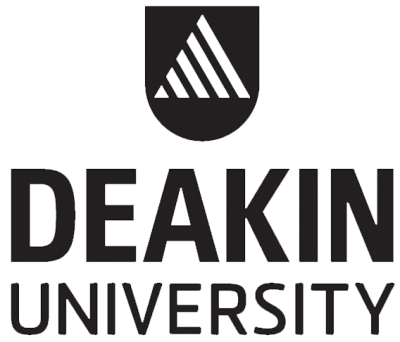
Deakin University
Graduate Diploma of Creative Writing
Burwood, Australia
Request pace
APPLICATION DEADLINE
Request application deadline
EARLIEST START DATE
Request earliest startdate
TUITION FEES
Request tuition fees
STUDY FORMAT
Scholarships
Explore scholarship opportunities to help fund your studies.
Discover how to connect with audiences of all ages in Deakin's Graduate Diploma of Creative Writing. In this one-year specialist course, you will be mentored by published authors as you learn how to create a body of work for publication. Explore and master a range of key writing techniques, such as the ability to edit, analyse a range of genres, blueprint a draft, and take a concept through the various stages of revision.
Want the confidence, insight and creative control to bring your story idea to life?
In core units, you will get to grips with the basics of constructing a great story. Learn in workshop-style classes and receive feedback as you discover how to manipulate time and perspective in narratives, experiment with genre, form and style, and refine your ability to create compelling characters and voices. In addition, you will be challenged to develop and employ regular writing structures, practices and modes of thinking – necessary skills for any working writer.
Similar Courses
Bachelor of arts (ba) in english: creative writing.
- Dubuque, USA
Bachelor of Fine Arts/Bachelor of Arts in English + Creative Writing
- Columbia, USA
BA in English Literature with Creative Writing
- Manchester, United Kingdom
Articles on Creative writing
Displaying 1 - 20 of 46 articles.
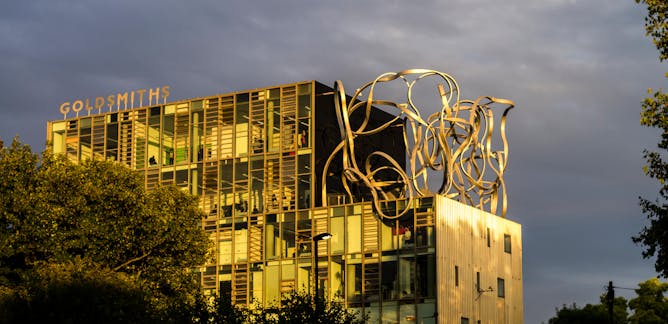
UK’s creative industries bring in more revenue than cars, oil and gas – so why is arts education facing cuts?
Adam Behr , Newcastle University

An ode to the social realism of ‘boring’ lyrics – from The Kinks to The Streets
Glenn Fosbraey , University of Winchester

How to write a love song – three tips for beginners from a songwriting expert

‘ Cli-fi ’ might not save the world, but writing it could help with your eco-anxiety
Rachel Hennessy , The University of Melbourne ; Alex Cothren , Flinders University , and Amy T Matthews , Flinders University

I research the therapeutic qualities of writing about art – here are three steps for trying it yourself
Patrick Wright , The Open University
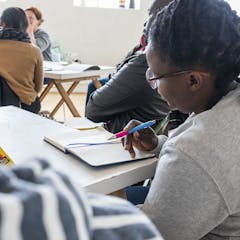
Creative writing can help improve one’s health: a South African study shows how
Dawn Garisch , University of Cape Town and Steve Reid , University of Cape Town
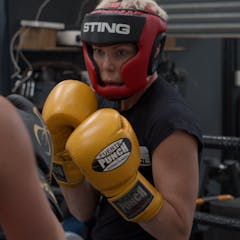
Boxing empowered me to express my trauma – now, I help other abuse survivors do the same, combining it with creative writing
Donna Lyon , The University of Melbourne


How a poet and professor promotes racial understanding with lessons from history
Quraysh Ali Lansana , Oklahoma State University

How to understand your grief through writing
Catherine Cole , Liverpool John Moores University
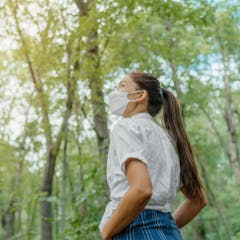
Write what you know: the COVID experience is a rich resource for year 12 English exams
Janet Dutton , Macquarie University

5 ways to teach the link between grammar and imagination for better creative writing
Brett Healey , Curtin University

Writing can improve mental health – here’s how
Christina Thatcher , Cardiff Metropolitan University

In an AI world we need to teach students how to work with robot writers
Lucinda McKnight , Deakin University

To succeed in an AI world, students must learn the human traits of writing

‘Lit therapy’ in the classroom: writing about trauma can be valuable, if done right
Yannick Thoraval , RMIT University

Too many adjectives, not enough ideas: how NAPLAN forces us to teach bad writing
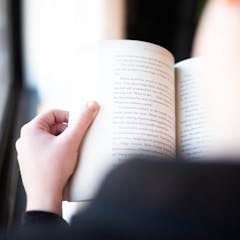
What my students taught me about reading: old books hold new insights for the digital generation
Kate Flaherty , Australian National University
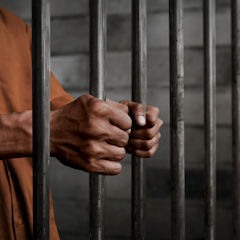
Life sentences – what creative writing by prisoners tells us about the inside
Dr Michael X. Savvas , Flinders University
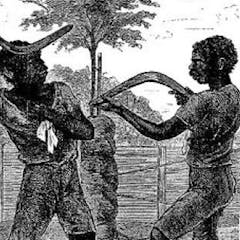
Frozen in time, the casts of Indigenous Australians who performed in ‘human zoos’ are chilling
Katherine Johnson , University of Tasmania

‘I’m in another world’: writing without rules lets kids find their voice, just like professional authors
Related topics.
- Australian literature
- Mental health
Top contributors
Visiting Fellow, Centre for Cultural and Creative Research, University of Canberra, University of Canberra
Adjunct assistant professor, University of New England
Associate professor, Deakin University
Associate Professor in Media, University of Notre Dame Australia
PhD Student, School of Education, Curtin University
Executive Dean (interim) Faculty of Arts and Design, University of Canberra
Lecturer in Creative Writing, University of Southern Queensland
Senior Lecturer in Creative Writing, University of Stirling
Associate Dean of Humanities and Social Sciences, University of Winchester
Dean of Research (Creative), University of South Australia
Honorary Associate in Creative Writing, The Open University
Lecturer of English, University of Liverpool
Professor of Creative Arts, Griffith University
Honorary Professor, The University of Queensland
Associate Professor. Associate Director of the Creative Lab., Queensland University of Technology
- X (Twitter)
- Unfollow topic Follow topic

Virtual Tour
Experience University of Idaho with a virtual tour. Explore now
- Discover a Career
- Find a Major
- Experience U of I Life
More Resources
- Admitted Students
- International Students
Take Action
- Find Financial Aid
- View Deadlines
- Find Your Rep

Helping to ensure U of I is a safe and engaging place for students to learn and be successful. Read about Title IX.
Get Involved
- Clubs & Volunteer Opportunities
- Recreation and Wellbeing
- Student Government
- Student Sustainability Cooperative
- Academic Assistance
- Safety & Security
- Career Services
- Health & Wellness Services
- Register for Classes
- Dates & Deadlines
- Financial Aid
- Sustainable Solutions
- U of I Library

- Upcoming Events
Review the events calendar.
Stay Connected
- Vandal Family Newsletter
- Here We Have Idaho Magazine
- Living on Campus
- Campus Safety
- About Moscow

The largest Vandal Family reunion of the year. Check dates.
Benefits and Services
- Vandal Voyagers Program
- Vandal License Plate
- Submit Class Notes
- Make a Gift
- View Events
- Alumni Chapters
- University Magazine
- Alumni Newsletter

U of I's web-based retention and advising tool provides an efficient way to guide and support students on their road to graduation. Login to VandalStar.
Common Tools
- Administrative Procedures Manual (APM)
- Class Schedule
- OIT Tech Support
- Academic Dates & Deadlines
- U of I Retirees Association
- Faculty Senate
- Staff Council
Department of English
M.f.a. creative writing.
English Department
Physical Address: 200 Brink Hall
Mailing Address: English Department University of Idaho 875 Perimeter Drive MS 1102 Moscow, Idaho 83844-1102
Phone: 208-885-6156
Email: [email protected]
Web: English
Thank you for your interest in the Creative Writing MFA Program at the University of Idaho: the premier fully funded, three-year MFA program in the Northwest. Situated in the panhandle of Northern Idaho in the foothills of Moscow Mountain, we offer the time and support to train in the traditions, techniques, and practice of nonfiction, poetry, and fiction. Each student graduates as the author of a manuscript of publishable quality after undertaking a rigorous process of thesis preparation and a public defense. Spring in Moscow has come to mean cherry blossoms, snowmelt in Paradise Creek, and the head-turning accomplishments of our thesis-year students. Ours is a faculty of active, working writers who relish teaching and mentorship. We invite you in the following pages to learn about us, our curriculum, our community, and the town of Moscow. If the prospect of giving yourself three years with us to develop as a writer, teacher, and editor is appealing, we look forward to reading your application.
Pure Poetry
A Decade Working in a Smelter Is Topic of Alumnus Zach Eddy’s Poems
Ancestral Recognition
The region surrounding the University of Idaho is the ancestral land of both the Coeur d’Alene and Nez Perce peoples, and its campus in Moscow sits on unceded lands guaranteed to the Nez Perce people in the 1855 Treaty with the Nez Perce. As a land grant university, the University of Idaho also benefits from endowment lands that are the ancestral homes to many of the West’s Native peoples. The Department of English and Creative Writing Program acknowledge this history and share in the communal effort to ensure that the complexities and atrocities of the past remain in our discourse and are never lost to time. We invite you to think of the traditional “land acknowledgment” statement through our MFA alum CMarie Fuhrman’s words .
Degree Requirements
Three years to write.
Regardless of where you are in your artistic career, there is nothing more precious than time. A three-year program gives you time to generate, refine, and edit a body of original work. Typically, students have a light third year, which allows for dedicated time to complete and revise the Creative Thesis. (48 manuscript pages for those working in poetry, 100 pages for those working in prose.)
Our degree requirements are designed to reflect the real-world interests of a writer. Students are encouraged to focus their studies in ways that best reflect their artistic obsessions as well as their lines of intellectual and critical inquiry. In effect, students may be as genre-focused or as multi-genre as they please. Students must remain in-residence during their degrees. Typically, one class earns you 3 credits. The MFA requires a total of 54 earned credits in the following categories.
12 Credits : Graduate-level Workshop courses in Fiction, Poetry, and/or Nonfiction. 9 Credits: Techniques and Traditions courses in Fiction, Poetry, and/or Nonfiction 3 Credits : Internships: Fugue, Confluence Lab, and/or Pedagogy 9 Credits: Literature courses 12 Credits: Elective courses 10 Credits: Thesis
Flexible Degree Path
Students are admitted to our program in one of three genres, Poetry, Fiction, or Nonfiction. By design, our degree path offers ample opportunity to take Workshop, Techniques, Traditions, and Literature courses in any genre. Our faculty work and publish in multiple genres and value the slipperiness of categorization. We encourage students to write in as broad or focused a manner as they see fit. We are not at all interested in making writers “stay in their lanes,” and we encourage students to shape their degree paths in accordance with their passions.
What You Study
During your degree, you will take Workshop, Techniques, Traditions, and Literature courses.
Our workshop classes are small by design (typically twelve students or fewer) and taught by core and visiting MFA faculty. No two workshop experiences look alike, but what they share are faculty members committed to the artistic and intellectual passions of their workshop participants.
Techniques studios are developed and taught by core and visiting MFA faculty. These popular courses are dedicated to the granular aspects of writing, from deep study of the poetic image to the cultivation of independent inquiry in nonfiction to the raptures of research in fiction. Such courses are heavy on generative writing and experimentation, offering students a dedicated space to hone their craft in a way that is complementary to their primary work.
Traditions seminars are developed and taught by core and visiting MFA faculty. These generative writing courses bring student writing into conversation with a specific trajectory or “tradition” of literature, from life writing to outlaw literature to the history of the short story, from prosody to postwar surrealism to genre-fluidity and beyond. These seminars offer students a dynamic space to position their work within the vast and varied trajectories of literature.
Literature courses are taught by core Literature and MFA faculty. Our department boasts field-leading scholars, interdisciplinary writers and thinkers, and theory-driven practitioners who value the intersection of scholarly study, research, humanism, and creative writing.
Award-Winning Faculty
We teach our classes first and foremost as practitioners of the art. Full stop. Though our styles and interests lie at divergent points on the literary landscape, our common pursuit is to foster the artistic and intellectual growth of our students, regardless of how or why they write. We value individual talent and challenge all students to write deep into their unique passions, identities, histories, aesthetics, and intellects. We view writing not as a marketplace endeavor but as an act of human subjectivity. We’ve authored or edited several books across the genres.
Learn more about Our People .
Thesis Defense
The MFA experience culminates with each student writing and defending a creative thesis. For prose writers, theses are 100 pages of creative work; for poets, 48 pages. Though theses often take the form of an excerpt from a book-in-progress, students have flexibility when it comes to determining the shape, form, and content of their creative projects. In their final year, each student works on envisioning and revising their thesis with three committee members, a Major Professor (core MFA faculty) and two additional Readers (core UI faculty). All students offer a public thesis defense. These events are attended by MFA students, faculty, community members, and other invitees. During a thesis defense, a candidate reads from their work for thirty minutes, answers artistic and critical questions from their Major Professor and two Readers for forty-five minutes, and then answer audience questions for thirty minutes. Though formally structured and rigorous, the thesis defense is ultimately a celebration of each student’s individual talent.
The Symposium Reading Series is a longstanding student-run initiative that offers every second-year MFA candidate an opportunity to read their works-in-progress in front of peers, colleagues, and community members. This reading and Q & A event prepares students for the third-year public thesis defense. These off-campus events are fun and casual, exemplifying our community centered culture and what matters most: the work we’re all here to do.
Teaching Assistantships
All students admitted to the MFA program are fully funded through Teaching Assistantships. All Assistantships come with a full tuition waiver and a stipend, which for the current academic year is roughly $15,000. Over the course of three years, MFA students teach a mix of composition courses, sections of Introduction to Creative Writing (ENGL 290), and additional writing courses, as departmental needs arise. Students may also apply to work in the Writing Center as positions become available. When you join the MFA program at Idaho, you receive teacher training prior to the beginning of your first semester. We value the role MFA students serve within the department and consider each graduate student as a working artist and colleague. Current teaching loads for Teaching Assistants are two courses per semester. Some members of the Fugue editorial staff receive course reductions to offset the demands of editorial work. We also award a variety of competitive and need-based scholarships to help offset general living costs. In addition, we offer three outstanding graduate student fellowships: The Hemingway Fellowship, Centrum Fellowship, and Writing in the Wild Fellowship. Finally, our Graduate and Professional Student Association offers extra-departmental funding in the form of research and travel grants to qualifying students throughout the academic year.
Distinguished Visiting Writers Series
Each year, we bring a Distinguished Visiting Writer to campus. DVWs interface with our writing community through public readings, on-stage craft conversations hosted by core MFA faculty, and small seminars geared toward MFA candidates. Recent DVWs include Maggie Nelson, Roger Reeves, Luis Alberto Urrea, Brian Evenson, Kate Zambreno, Dorianne Laux, Teju Cole, Tyehimba Jess, Claire Vaye Watkins, Naomi Shihab Nye, David Shields, Rebecca Solnit, Gabrielle Calvocoressi, Susan Orlean, Natasha Tretheway, Jo Ann Beard, William Logan, Aisha Sabatini Sloan, Gabino Iglesias, and Marcus Jackson, among several others.
Fugue Journal
Established in 1990 at the University of Idaho, Fugue publishes poetry, fiction, essays, hybrid work, and visual art from established and emerging writers and artists. Fugue is managed and edited entirely by University of Idaho graduate students, with help from graduate and undergraduate readers. We take pride in the work we print, the writers we publish, and the presentation of both print and digital content. We hold an annual contest in both prose and poetry, judged by two nationally recognized writers. Past judges include Pam Houston, Dorianne Laux, Rodney Jones, Mark Doty, Rick Moody, Ellen Bryant Voigt, Jo Ann Beard, Rebecca McClanahan, Patricia Hampl, Traci Brimhall, Edan Lepucki, Tony Hoagland, Chen Chen, Aisha Sabatini Sloan, sam sax, and Leni Zumas. The journal boasts a remarkable list of past contributors, including Steve Almond, Charles Baxter, Stephen Dobyns, Denise Duhamel, Stephen Dunn, B.H. Fairchild, Nick Flynn, Terrance Hayes, Campbell McGrath, W.S. Merwin, Sharon Olds, Jim Shepard, RT Smith, Virgil Suarez, Melanie Rae Thon, Natasha Trethewey, Philip Levine, Anthony Varallo, Robert Wrigley, and Dean Young, among many others.
Academy of American Poets University Prize
The Creative Writing Program is proud to partner with the Academy of American Poets to offer an annual Academy of American Poets University Prize to a student at the University of Idaho. The prize results in a small honorarium through the Academy as well as publication of the winning poem on the Academy website. The Prize was established in 2009 with a generous grant from Karen Trujillo and Don Burnett. Many of our nation’s most esteemed and celebrated poets won their first recognition through an Academy of American Poets Prize, including Diane Ackerman, Toi Derricotte, Mark Doty, Tess Gallagher, Louise Glück, Jorie Graham, Kimiko Hahn, Joy Harjo, Robert Hass, Li-Young Lee, Gregory Orr, Sylvia Plath, Mark Strand, and Charles Wright.
Fellowships
Centrum fellowships.
Those selected as Centrum Fellows attend the summer Port Townsend Writers’ Conference free of charge. Housed in Fort Worden (which is also home to Copper Canyon Press), Centrum is a nonprofit dedicated to fostering several artistic programs throughout the year. With a focus on rigorous attention to craft, the Writers’ Conference offers five full days of morning intensives, afternoon workshops, and craft lectures to eighty participants from across the nation. The cost of the conference, which includes tuition, lodging, and meals, is covered by the scholarship. These annual scholarship are open to all MFA candidates in all genres.
Hemingway Fellowships
This fellowship offers an MFA Fiction student full course releases in their final year. The selection of the Hemingway Fellow is based solely on the quality of an applicant’s writing. Each year, applicants have their work judged blind by a noted author who remains anonymous until the selection process has been completed. Through the process of blind selection, the Hemingway Fellowship Fund fulfills its mission of giving the Fellow the time they need to complete a substantial draft of a manuscript.
Writing in the Wild
This annual fellowship gives two MFA students the opportunity to work in Idaho’s iconic wilderness areas. The fellowship fully supports one week at either the McCall Outdoor Science School (MOSS), which borders Payette Lake and Ponderosa State Park, or the Taylor Wilderness Research Station, which lies in the heart of the Frank Church River of No Return Wilderness Area. Both campuses offer year-round housing. These writing retreats allow students to concentrate solely on their writing. Because both locations often house researchers, writers will also have the opportunity to interface with foresters, geologists, biologists, and interdisciplinary scholars.
Program History
Idaho admitted its first class of seven MFA students in 1994 with a faculty of four: Mary Clearman Blew, Tina Foriyes, Ron McFarland (founder of Fugue), and Lance Olsen. From the beginning, the program was conceived as a three-year sequence of workshops and techniques classes. Along with offering concentrations in writing fiction and poetry, Idaho was one of the first in the nation to offer a full concentration in creative nonfiction. Also from its inception, Idaho not only allowed but encouraged its students to enroll in workshops outside their primary genres. Idaho has become one of the nation’s most respected three-year MFA programs, attracting both field-leading faculty and students. In addition to the founders of this program, notable distinguished faculty have included Kim Barnes, Robert Wrigley, Daniel Orozco, Joy Passanante, Tobias Wray, Brian Blanchfield, and Scott Slovic, whose collective vision, rigor, grit, and care have paved the way for future generations committed to the art of writing.
The Palouse
Situated in the foothills of Moscow Mountain amid the rolling terrain of the Palouse (the ancient silt beds unique to the region), our location in the vibrant community of Moscow, Idaho, boasts a lively and artistic local culture. Complete with independent bookstores, coffee shops, art galleries, restaurants and breweries, (not to mention a historic art house cinema, organic foods co-op, and renowned seasonal farmer’s market), Moscow is a friendly and affordable place to live. Outside of town, we’re lucky to have many opportunities for hiking, skiing, rafting, biking, camping, and general exploring—from nearby Idler’s Rest and Kamiak Butte to renowned destinations like Glacier National Park, the Snake River, the Frank Church River of No Return Wilderness Area, and Nelson, BC. As for more urban getaways, Spokane, Washington, is only a ninety-minute drive, and our regional airline, Alaska, makes daily flights to and from Seattle that run just under an hour.
For upcoming events and program news, please visit our calendar .
For more information about the MFA program, please contact us at: [email protected]
Department of English University of Idaho 875 Perimeter Drive MS 1102 Moscow, ID 83844-1102 208-885-6156

Creative Writing and Fine Art
BA Creative Writing and Fine Art Code WW18 Applicant Visiting Days Applicant Visiting Days --> Attend an Open Day Attend an Open Day Open Days - Register Now Open Days - Register Now --> Apply Now Scholarships and Bursaries worth over £15,000 – apply now --> Accepting late applications Apply now -->
You are viewing this course for September start 2024
UCAS Tariff
Course duration.
Further details on entry requirements
Creative Writing with Fine Art at Aberystwyth University will allow you to develop new or broaden and deepen your skills in painting, printmaking, photography to name a few whilst at the same time discovering and immersing yourself in the words that have our shaped our world. This cross-disciplinary degree will introduce to you an ever-expanding industry, providing you with an advantageous start after graduation. Under the expert guidance of our award-winning writers and experts in Fine Art, you will discover the hidden talents and find out what sort of artist you are. On completion to this degree, you will have not only a portfolio of exceptional creative material, but also the skills and attributes to flourish in any workplace.
Course Overview
Why study Creative Writing with Fine Art at Aberystwyth University?
- Benefit from the disciplined acquisition of technical expertise, the formation of creative intelligence, and a historical, critical, theoretical and contemporary aware of Fine Art practice.
- The School of Art at Aberystwyth University has been awarded Accredited Museum Status by Arts Council England. This demonstrates that our collection care and management are at the highest standard.
- Explore connections between creative and critical thinking and develop a deep understanding of the relationship between professional practice and imaginative thought.
- Learn from experienced staff who are internationally renowned artists, authors, curators and art historians.
- Participate in our study visits within the UK or abroad (destinations have included Madrid, Paris, Rome, Amsterdam, New York, Vienna, Barcelona, Venice, Moscow, St Petersburg, Florence, Budapest and Lisbon).
- In your final year you will have the opportunity to take part in a writing retreat at a country house in mid-Wales - an amazing opportunity to spend time with fellow students and staff, developing your final year projects and dissertations, in a splendid rural setting.
All academic staff in the Department of English and Creative Writing are active scholars and experts in their fields. They are either qualified to PhD level or have commensurate experience. Our Lecturers either hold or are working towards a Higher Education teaching qualification and the majority of academic staff also hold the status of Fellow of the Higher Education Academy.
Our teaching staff are practicing professionals. As exhibiting artists, publishing researchers and curators, they provide an informed and stimulating learning environment. This ensures that the skills you learn at the School of Art are practice orientated, relevant and applicable.
For further information, visit our individual staff profiles .
Modules September start - 2024
Please note: The modules listed below are those currently intended for delivery during the next academic year and may be subject to change. They are included here to give an indication of how the course is structured.
* Also available partially or entirely through the medium of Welsh
What career prospects are there for me?
Many of our graduates are successful writers in the fields of:
- Non-fiction
- Screen-writing
Some of our graduates have discovered other successful career options:
- Marketing and Communications
As well as establishing careers as practicing artists, some our graduates have become employees within:
- Design Council
- Arts Council
- Tate Gallery
- Victoria and Albert Museum
- Royal Academy of Arts
- Carlton Television
- The Observer
- Saatchi Gallery
- Damien Hirst
- Viz magazine
- Royal Collections Trust.
What career enhancing opportunities are there for me as a student?
Aberystwyth Arts Centre will be woven integrally into your learning opportunities, permitting staff and students to come together with the shared aim of engaging, working and learning in a thriving and dynamic creative culture. Here you may showcase your work, engage and network with others, and develop lifelong skills valuable to employers in the creative industries and beyond.
Our degree will enable you to develop:
- the ability to express ideas and communicate information effectively in a broad range of contexts
- outstanding skills in creating, forming and manipulating the written word
- evidence of your ability to be an effective problem solver
- excellent creative thinking, informed by critical rigour
- a proven ability to work both independently and as part of a team
- excellent time-management and organisational skills, including the ability to meet deadlines
- self-motivation and self-reliance and have the ability to develop appropriate and effective strategies
- valuable research skills that are trans-disciplinary and adaptable to any research context.
What work experience opportunities exist whilst studying?
Click here to find out about the various opportunities that our Aberystwyth University Careers team offer.
Enhance your employability prospects with GO Wales and YES (Year in Employment Scheme) managed by our Careers department.
Teaching & Learning
What will I learn?
The breakdown below will provide you with an illustration of what you may study during the three year degree scheme.
This degree is based on our strongly held belief that in order to become a really great writer you need to be a good reader, whilst offering you the flexibility to develop as a writer across a range of creative modes. During your first year you will develop foundational skills in the interpretation and analysis of literary texts, alongside your study of basic writing skills. Throughout the course you will use your knowledge of literature and textual production in your own creative work, exploring the relationship between creative and critical practice.
In the first year you will discover:
- A range of techniques for reading and writing fiction and poetry
- Modes of descriptive writing
- The importance of plot
- Printmaking
- Drawing and Painting
- Life Room studies
- Art History
- The use of dialogue
- Some key figures from literary history (from Shakespeare to the Brontës)
- Lesser known texts, and writers who are new-to-you
- Interdisciplinary thinking and practice
- A variety of “ways of reading” and some theoretical approaches to textual analysis
- “The critical commentary” and research skills for writers.
In the second year you will explore:
- The theoretical approaches to, and the practice of, literary criticism
- Your own writing style, informed by your reading and research
- A programme of tutor-led self-directed practice and research that evidences an experimental approach and gives expression to a personal voice as an artist
- A self-critical approach to creative working and professional methods
- your art practice within contemporary contexts and historical traditions
- A number of specialist topics chosen by you (these might focus on a specific genre (such as crime fiction), historical period (such as the Victorian era), or theme (such as “transpositions”).
Students following this degree programme have the flexibility to take option modules from the departments of Film, Theatre and Television Studies, and Welsh and Celtic studies, both of which offer a number of creative writing modules in areas such as scriptwriting, writing for radio, writing for television and much more.
In the third year you will master:
- Theory for writers and the application of theoretical perspectives the production and critical evaluation of your own creative work;
- And produce a body or work that demonstrates conceptual and technical coherence;
- The subject and conceptual bases acquired over three years to produce a body of qualitative work for public exhibition
- Extended writing and independent research in your final year writing project (chosen and defined by you with the support of a published author)
- Your own specialisms drawn from a diverse range of option modules taught by writers in those fields. Our option modules include topics such as Elizabethan drama, the ghost story, queer fiction, writing for children, science fiction and fantasy, and much more.
- In your final year you will have the opportunity to take part in a writing retreat at a country house in mid Wales - an amazing opportunity to spend time with fellow students and staff, developing your final year projects and dissertations, in a splendid rural setting.
How will I be taught?
Our course is delivered through a range of traditional and non-traditional settings with particular emphasis on workshops and discursive seminars. Lectures are not the norm but are used when it is essential to convey specific, knowledge-centred, material. One-to-one tutorials will also be a regular feature in your timetable, particularly towards the end of your programme of study. We assess our students through portfolio submissions, essays and, on some modules, traditional examinations and presentations.
Typical Entry Requirements
UCAS Tariff 120 - 104
A Levels BBB-BCC to include B in Art or related subject, plus satisfactory portfolio
GCSE requirements (minimum grade C/4): English or Welsh
BTEC National Diploma: DDM-DMM, plus satisfactory portfolio
International Baccalaureate: 30-28, plus satisfactory portfolio
European Baccalaureate: 75%-65% overall, plus satisfactory portfolio
English Language Requirements: See our Undergraduate English Language Requirements for this course. Pre-sessional English Programmes are also available for students who do not meet our English Language Requirements.
Country Specific Entry Requirements: International students whose qualification is not listed on this page, can check our Country Specific Entry Requirements for further information.
The University welcomes undergraduate applications from students studying the Access to Higher Education Diploma or T-level qualifications, provided that relevant subject content and learning outcomes are met. We are not able to accept Access to Higher Education Diplomas or T-levels as a general qualification for every undergraduate degree course. Our inclusive admissions policy values breadth as well as depth of study. Applicants are selected on their own individual merits and offers can vary. If you would like to check the eligibility of your qualifications before submitting an application, please contact the Undergraduate Admissions Office for advice and guidance.

IMAGES
VIDEO
COMMENTS
Your estimated FEE-HELP repayments. $25,000* is the estimated full cost for a Graduate Diploma of Creative Writing ( 8 credit points), based on the 2024 fees. $1,196 is the annual FEE-HELP payment, based on your current salary. 2% of your current salary be spent on FEE-HELP. *Disclaimer.
The Graduate Diploma of Creative Writing provides students with the skills to write across a range of genres and writing styles. Students will graduate with a portfolio of writing showcasing their knowledge and skills in Creative Writing. ... Deakin course code : A636: Approval status: This course is approved by the University under the Higher ...
Discover how to connect with audiences of all ages in Deakin's Graduate Diploma of Creative Writing. In this one-year specialist course, you'll be mentored by published authors as you develop and refine a body of work for publication. Explore and master a range of key writing techniques, such as the ability to edit, analyse a range of genres, and blueprint a draft and take a concept ...
Discover how to connect with audiences of all ages in Deakin's Graduate Diploma of Creative Writing. In this one-year specialist course, you will be mentored by published authors as you learn how to create a body of work for publication.
Students: Find out about Graduate Diploma of Creative Writing at Deakin University. Graduate Diploma of Creative Writing course details. 55883302 ... The Graduate Diploma of Creative Writing will advance and consolidate knowledge of Creative Writing theories, practice and skills for the conception, crafting, production and dissemination of ...
Master of Arts (Writing and Literature) Creative practice can be a complicated thing. To feel safe and feel like the teachers supported my creative development was really valuable. The skills I learnt through Deakin's Master of Arts (Writing and Literature) helped me become a published poet.
Course rules. To qualify for the Graduate Diploma of Creative Arts, a student must successfully complete 8 credit points of study comprising: 2 core units: ACA710 and ACA712. Choose 6 credit points of electives from the Master of Creative Arts, Master of Communication or Master of Arts (Writing and Literature)
Discover how to connect with audiences of all ages in Deakin's Graduate Diploma of Creative Writing. In this one-year specialist course, you will be mentored by published authors as you learn how to create a body of work for publication. Explore and master a range of key writing techniques, such as the ability to edit, analyse a range of genres ...
Brett Healey, Curtin University. What children say about free writing is similar to how professional authors describe the creative process. Teachers should give kids freedom to explore, providing ...
Our M.F.A. program is three years. We offer full and equitable funding for all students through Teaching Assistantships and tuition waivers. We admit two to four students per genre each year (nine students per cohort, on average). Our program is small by design, ensuring that community and mentorship are central to the experience of our degree ...
For more information about the MFA program, please contact us at: [email protected]. Department of English. University of Idaho. 875 Perimeter Drive MS 1102. Moscow, ID 83844-1102. 208-885-6156. The Master of Fine Arts Creative Writing program at the University of Idaho is an intense, three-year course of study that focuses on the ...
WW18. Creative Writing with Fine Art at Aberystwyth University will allow you to develop new or broaden and deepen your skills in painting, printmaking, photography to name a few whilst at the same time discovering and immersing yourself in the words that have our shaped our world. This cross-disciplinary degree will introduce to you an ever ...